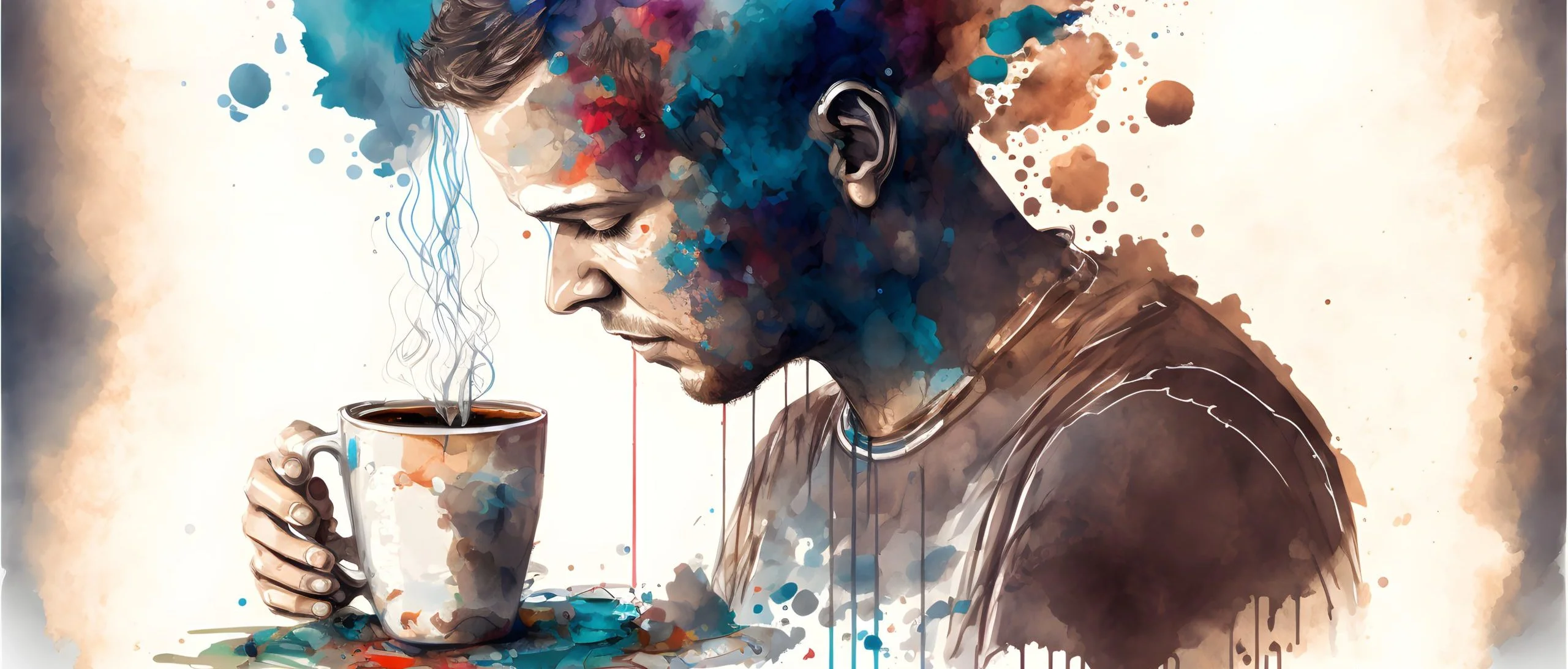
Caffeine can be a controversial topic when it comes to driver safety. Many of us delight in the clarity that comes with the first coffee of the day, and plenty have stopped for a much-needed caffeine hit at some point during a long drive.
How much does coffee improve our ability to perform behind the wheel, especially if we’re feeling drowsy?
The good news is that there is an enormous wealth of knowledge out there on the subject – peer-reviewed studies by prestigious institutions are easy to find. We’ve hand-picked a few and added some thoughts of our own.
First, some facts:
- Caffeine delays the onset of fatigue and can increase alertness and reaction speed.
- The effects of caffeine peak roughly 30 minutes after consumption when consumed in a drink – onset can be faster in other mediums such as chewing gum.
- Caffeine has a half-life of roughly 6 hours – this can vary from person to person, but on average, 6 hours after consumption people will feel half of the original effect.
How caffeine works its magic
Caffeine has a molecular structure which happens to be similar to a naturally occurring chemical in our body called adenosine. Adenosine attaches itself to receptors in our nervous system, slowing things down and making us feel sleepy.
Caffeine, thanks to its similar chemical structure, can attach itself to the same receptors. But – while adenosine acts to calm our nervous system, which makes us feel sleepy, caffeine blocks those receptors – delaying the onset of fatigue.
Instead of calming nerve cells like adenosine, caffeine actively stimulates them – increasing heart rate, blood pressure, and alertness.
Effectively, the buzz we get from caffeine is our brains being tricked into thinking we aren’t tired. Caffeine really does alleviate some symptoms of fatigue! But it’s worth remembering – caffeine doesn’t replace our bodies’ need for sleep.
The Australian Department of Defence and partners
A study by the Australian Department of Defence kept participants awake for 50 hours and required them to drive a simulated vehicle on 15 separate occasions for 40 minutes each time. Half of the group was given caffeinated gum and the other half a placebo of the same gum with no caffeine.
In the caffeine group, there was a much lower incidence of driving errors despite the growing drowsiness over the period of sleep deprivation.
Utrecht University
A study conducted by Utrecht University had similar findings. This time, non-sleep-deprived healthy volunteers participated in a double-blind, placebo-controlled, crossover study. After 2 hours of monotonous highway driving, subjects received caffeinated or decaffeinated coffee during a 15-min break before another 2-hour drive. The subjects’ performance was measured primarily by how much the car was weaving (referred to as Standard Deviation of Lateral Position, or SDLP), but speed variability, subject sleepiness, and driving performance were all taken into account too.
The results of the study unambiguously found that caffeine significantly improved performance, reducing SDLP, speed variability, and subject sleepiness, with subject driving quality being especially improved in the first hour after consuming caffeinated coffee.
The George Institute for Global Health, University of Sydney
Thirdly, in another Australian study, researchers found that caffeine “can significantly protect against crash risk” for long-distance heavy vehicle drivers. The study analysed the differences between two large groups of HGV drivers: 530 drivers who had experienced collisions while on long-distance trips were compared against 517 drivers who had not had a collision in the previous 12 months. They found that:
43% of drivers reported consuming substances containing caffeine, such as tea, coffee, caffeine tablets, or energy drinks for the express purpose of staying awake. Lisa Sharwood (The George Institute, University of Sydney), lead author of the paper, says “This may seem effective in enhancing their alertness, but it should be considered carefully in the context of a safe and healthy fatigue management strategy; energy drinks and coffee certainly don’t replace the need for sleep”.
After adjusting for factors such as age, sleep patterns, symptoms of sleep apnoea, kilometres driven, breaks taken, and night driving schedules, the researchers found that drivers who consumed caffeine to help them stay awake were 63% less likely to crash than drivers who did not take caffeinated substances.
The researchers concluded that the consumption of caffeinated substances “can significantly protect against crash risk for the long-distance commercial driver” and this has “important implications for the improvement of fatigue management strategies for this and similar populations.” They do say, however, that the benefit is only useful for a short time and that having regular breaks, napping, and appropriate work schedules are strongly recommended.
Loughborough University and Virginia Tech Transportation Institute
In the final study we’re looking at in this article, a transatlantic team of researchers conducted an analysis of just over 3 thousand drivers.
1653 of the drivers self-reported low caffeine intake (1 caffeinated drink per day or less), and 1354 reported high intake (5 or more caffeinated drinks a day).
Caffeine consumers were compared across a range of driving safety indicators, health, and sleep variables. High caffeine consumers were more likely to report shorter average sleep time, a higher prevalence of excessive daytime sleepiness, and a higher proportion at high risk of obstructive sleep apnoea.
The study concluded that “caffeine is an effective countermeasure to driver sleepiness, but high caffeine consumers do not exhibit any benefit to driving safety indicators. In fact, there is some evidence for safety concerns because high-caffeine consumers self-report more crashes and worse driving safety indicators than low-caffeine consumers. High caffeine consumption was associated with poor health behaviours. Further research is needed to fully understand the implications of high caffeine use. Interventions aiming to reduce truck driver sleepiness should be cautious in promotion of caffeine in isolation; a holistic approach to improve driver health would likely be more effective than focusing on sleep health alone.”
IAM RoadSmart's thoughts
It’s important that drivers are fully informed of the benefits of caffeine, while also understanding its limitations.
It’s true that caffeine can offer an advantage when comparing two fatigued drivers, one of whom has been given caffeine. This shouldn’t leave the impression that a fatigued driver who’s had a coffee is therefore safe to get behind the wheel and buckle in for a long-distance drive.
In fact, habitual users of high quantities of caffeine could well be more dangerous behind the wheel when compared to those who have a sensible level of caffeine intake.
It’s essential that drivers are well within their tolerable limit of tiredness – skirting that limit and using caffeine as if it will protect them from a collision is inviting catastrophe.
IAM RoadSmart Director of Policy and Standards Nicholas Lyes said: “Drivers should always take a break after no more than two hours of driving. Caffeinated drinks can be helpful in terms of keeping drivers alert when on the road, but drinking them in the evening can also impact sleeping patterns. In other words, a strong coffee or tea is not a suitable substitute for a good night’s sleep.”
Get in touch to find out how you can enhance safety and wellbeing in your fleet.


